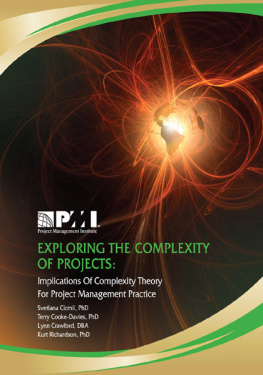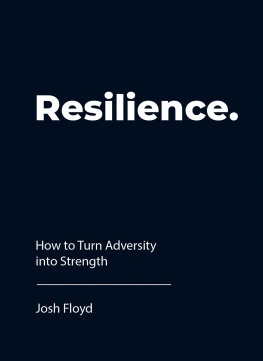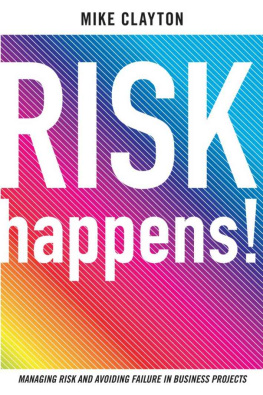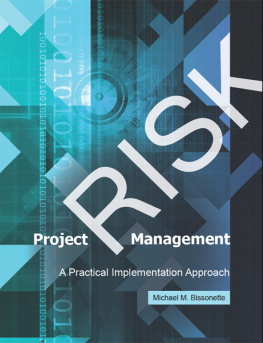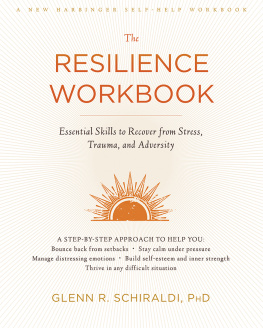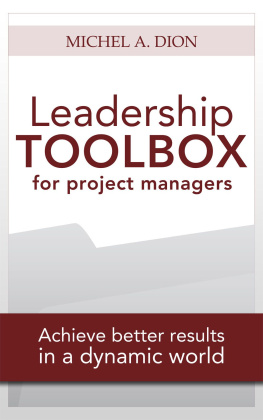Project Resilience
Beyond prescriptive project literature, we need to understand real projects, with real people and wicked problems. This book provides a structured approach, looking at traps or lures (certainty, aleatoric risk view, over-simplicity, fail-safe over-planning, illusion of control). The book recognises too difficult aspects that are often ignored, and best practices a good contribution to the new way of looking at real projects.
Terry Williams, Hull University Business School, UK
Insightful and down to earth this book is compulsive reading for anyone with an interest in Project Management. As the authors say, the purpose of this book is to guide not prescribe and in so doing it takes the reader through the subject matter in both its science and art forms. In so doing it provides a bridge between theory and practice using as it does some interesting vignettes to develop its themes. The aim is to improve the understanding of the practice of project management in all its forms and to provide useful, thought-provoking approaches to disentangle the myths of the subject matter. There are many practical tips for the practitioner set out by authors who clearly know and understand the subject matter. I believe this book makes a useful contribution to the current literature.
Mike Jones, Director of the Foundation for Management Education, UK
This very readable book addresses some very common causes of serious project problems and even failures the interplay of uncertainty and complexity and accommodating the different perceptions of those involved. The authors insights, plus the well exemplified and very practical approaches described, will enable project managers to avoid many of the resulting risks and enable effective responses if they occur.
John Ward, Cranfield University, School of Management, UK
This thoroughly researched book provides fresh insights and perspectives to help the most capable project managers manage risk and deliver change in an increasingly uncertain and volatile world. For those new to the role it provides wisdom that can take a career to obtain by focusing on the art of delivery, or leadership, rather than on the science.
Donnie MacNicol, Director of Team Animation, UK
In major projects it is often said that the hard things are easy and the soft things are hard. Managing the risks associated with people is far harder than managing those associated with engineering or technology. This book helps to address these more difficult challenges which emerge in complex and uncertain situations using more than just risk registers and tick boxes.
Manon Bradley, Development Director, Major Projects Association
A real refreshing new look at project management, pulling together recent research on how to deal with some of the challenges now being faced by project managers in the ever more complex project environment. Whereas traditional project management techniques and disciplines are essential, a project manager needs so much more if they are to be successful and this book is indeed a great help.
Dave Gunner, The PPM Academy
Project Resilience
The Art of Noticing, Interpreting, Preparing, Containing and Recovering
ELMAR KUTSCH, PhD
Cranfield University, UK
MARK HALL, PhD
Birmingham Business School, UK
NEIL TURNER, PhD
Cranfield University, UK

First published 2015 by Gower Publishing
Published 2016 by Routledge
2 Park Square, Milton Park, Abingdon, Oxon OX14 4RN
711 Third Avenue, New York, NY 10017, USA
Routledge is an imprint of the Taylor & Francis Group, an informa business
Copyright Tristian Evans 2015
Elmar Kutsch, Mark Hall and Neil Turner have asserted their right under the Copyright, Designs and Patents Act, 1988, to be identified as the authors of this work.
All rights reserved. No part of this book may be reprinted or reproduced or utilised in any form or by any electronic, mechanical, or other means, now known or hereafter invented, including photocopying and recording, or in any information storage or retrieval system, without permission in writing from the publishers.
Notice:
Product or corporate names may be trademarks or registered trademarks, and are used only for identification and explanation without intent to infringe.
British Library Cataloguing in Publication Data
A catalogue record for this book is available from the British Library
ISBN: 978-1-4724-2363-4 (hbk)
ISBN: 978-1-3156-0245-5 (ebk-ePDF)
ISBN: 978-1-3170-7497-7 (ebk-ePUB)
Library of Congress Cataloging-in-Publication Data
Kutsch, Elmar.
Project resilience : the art of noticing, interpreting, preparing, containing and recovering / by Elmar Kutsch, Mark Hall and Neil Turner.
pages cm
Includes bibliographical references and index.
ISBN 978-1-4724-2363-4 (hardback) -- ISBN 978-1-3156-0245-5 (ebook) -- ISBN 978-1-3170-7497-7 (epub) 1. Project management. 2. Risk management. I. Title.
HD69.P75K875 2015
658.404--dc23
2015015560
Contents
List of Figures
List of Tables
Preface
In recent decades, the function of project management has become significantly more professionalised and is recognised as a key contributor to organisational success in both the public and private sectors. It is the way that organisational strategy is executed, the way that change is brought about. Doing this well is a major contributor to economic growth worldwide, so progress in project management is to be applauded.
Numerous prescriptive project management guidelines have been developed with the underlying premise that by following a set of rules, procedures and techniques, project success becomes attainable, some may even say inevitable. These tools are certainly very valuable, yet numerous studies have indicated that project performance across a range of industries is still disappointing. We need more than process to get better.
In this book we acknowledge that in real projects we often have far less foreknowledge of events than we would like. Mostly our plans are estimates best-guesses and certainty is far from assured. Projects include risks we can determine and prepare for and uncertainties that may surprise us. In short, we live in a complex world that is often not amenable to clear-cut solutions.
Our aim here is to go going beyond compliance to rules and procedures. We greatly respect the science of project management, but we also have to consider the art. We need to incorporate human creative skill, experience, and imagination in dealing with uncertainty. We discuss how our cognitive limitations hinder us in our desire to manage adversity, but also provide ideas about practical steps managers can take to deal better with risk and uncertainty.
Our hope is that these ideas will assist you in managing project adversity more effectively, and in helping to prevent crises from happening. However, our view is that it is not about if but when trouble will strike, so preparation is key, together with an ability to recover the project afterwards. We take a mindfulness approach to project management, including building on individual and organisational behavioural attributes that aid in the recognition of, adaptation to, and recovery from, adversity. It is a human approach, recognising the artful requirements that project managers need to be both successful and satisfied with their projects and their careers.
Next page


